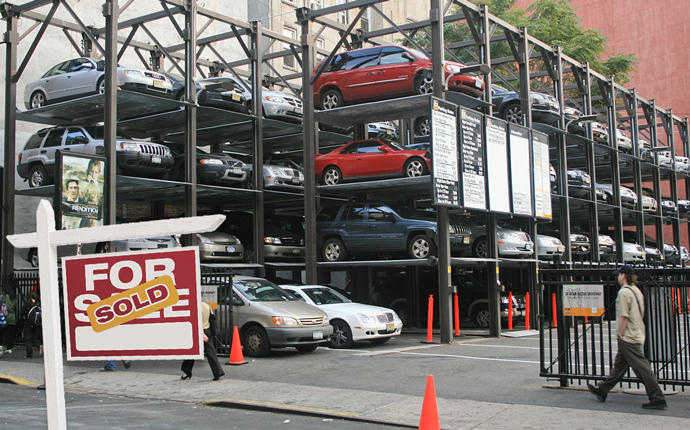Trending
They paved paradise to sell a parking lot
Sales of lots surge as developers seek to capitalize on prime areas

“They paved paradise to put up a parking lot,” Joni Mitchell famously sang. However, in hot real estate markets, we’re well past that.
Developers, desperate for prime land upon which to build, are increasingly eyeing parking lots, and that has caused trading activity of such assets to soar. In 2016, for example, there were over 200 sales of parking lots, according to CoStar Group data cited by the New York Times. That’s more than double the annual volume seen in 2006 through 2014, according to CoStar data cited by the publication.
“From a landowner’s standpoint, values have increased tremendously over the last several years, and it’s a great time to capitalize on that,” James Letchinger, whose firm JDL Development is building a pair of skyscrapers on a Chicago lot it purchased for $110 million for a Chicago lot in 2017, told the Times. “The reason they’re valuable is because many are sandwiched in the middle of really strong locations.”
Although parking lots remain lucrative businesses, there are factors that may make them less so in coming years. According to research firm IBISWorld, these include ridesharing, a surge in public transport usage and an uptick in bicycling.
And the lure of big money from developers may be too strong. Between 2003 and 2014, about 34 percent of the land classified as parking in Manhattan below 59th Street was redeveloped for other uses, according to an analysis of city data by The Real Deal. At the end of 2014, Ziel Feldman’s HFZ Capital Group paid a staggering $870 million, or about $1,100 per buildable square foot, for a 36,000-square-foot development site straddling the High Line that was once a parking lot. (HFZ’s condo project on the property, the XI, is now in the news for its role in an alleged bribery scandal involving the mob.)
Besides their prime locations, the biggest draw for developers is that parking lots, unlike existing structures, are flat, empty space.
“You don’t have to worry about demolishing something and, say, you find asbestos and all of a sudden you’ve got to encapsulate and do all sorts of crazy stuff,” said CBRE’s Bill Shanahan.
In Los Angeles, Ivy Station, a 500,000-square-foot project by Lowe Enterprises and Aecom Capital, is rising on a former parking lot next to a light-rail stop. It will include 200 apartments and 240,000 square feet of office space anchored by HBO, as TRD reported.
“You are starting with a clean slate,” Lowe’s Tom Wulf told the Times. “You have the opportunity to build out, you create the context yourself.” [NYT] — TRD Staff




